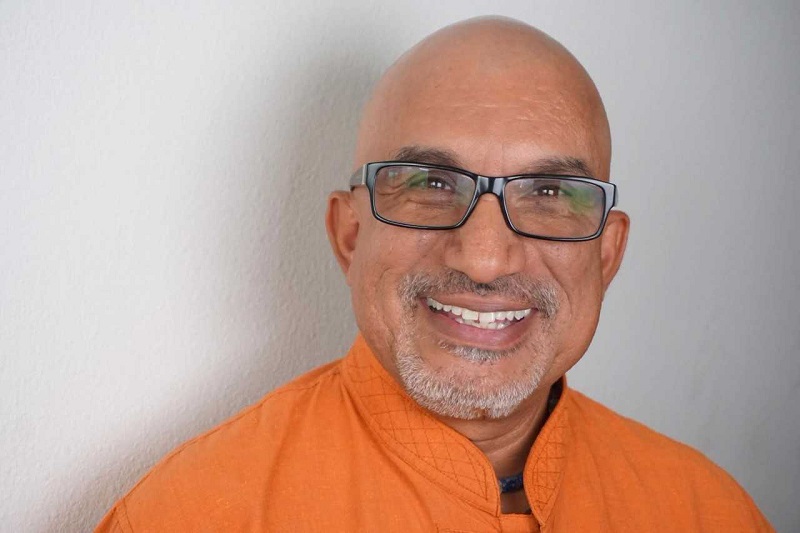
By Karla Amador
Daniel Gutierrez advocates the practice of mindfulness as a solution to the pressure of living in a modern society. He points out that we have been influenced into thinking of success as both a means and an end—success for the sake of success—and believing that soft skills are no longer important. He is an inspirational speaker, business consultant, author, and radio show personality who travels the world to provide people with inspiration as a spiritual teacher and life coach.
Gutierrez developed an interest in helping people when he himself was a busy professional. He climbed the corporate ladder and became successful, but felt there was something missing. He feels there’s nothing wrong with climbing to the top, but encourages people not to get caught up in the craziness of work life, and to find peace and tranquility. He shows people how to quiet the mind.
“When I left the mainstream business world, I didn’t go to school to learn mindfulness. I went to study with the monks in the Himalayas and the Shamans of Peru in the Andes. I went in search of what the heart can tell me, not what the mind could tell me,” he explains.
He encourages busy professionals to fulfill their dreams by practicing mindfulness. It’s not so much what you can accomplish, but how you can become a better person in your everyday work life. You have to turn off your phone and become centered on your breathing. This may not be easy because the mind is always programmed to be on the go, but the idea is for the individual to shift and get more out of their everyday work life.
“Mindful practice can increase productivity, but it shouldn’t be the end all. What should be the end all is that you become a better person.”
For example, when receiving an upsetting email at work, the idea is to not react but to stop and take a deep breath. When you can refrain from reacting out of emotion, it will lower any type of frustration or feeling of being stressed or burned out from work.
“The truth is that the only place anyone has the power to create change is in the present moment.”


